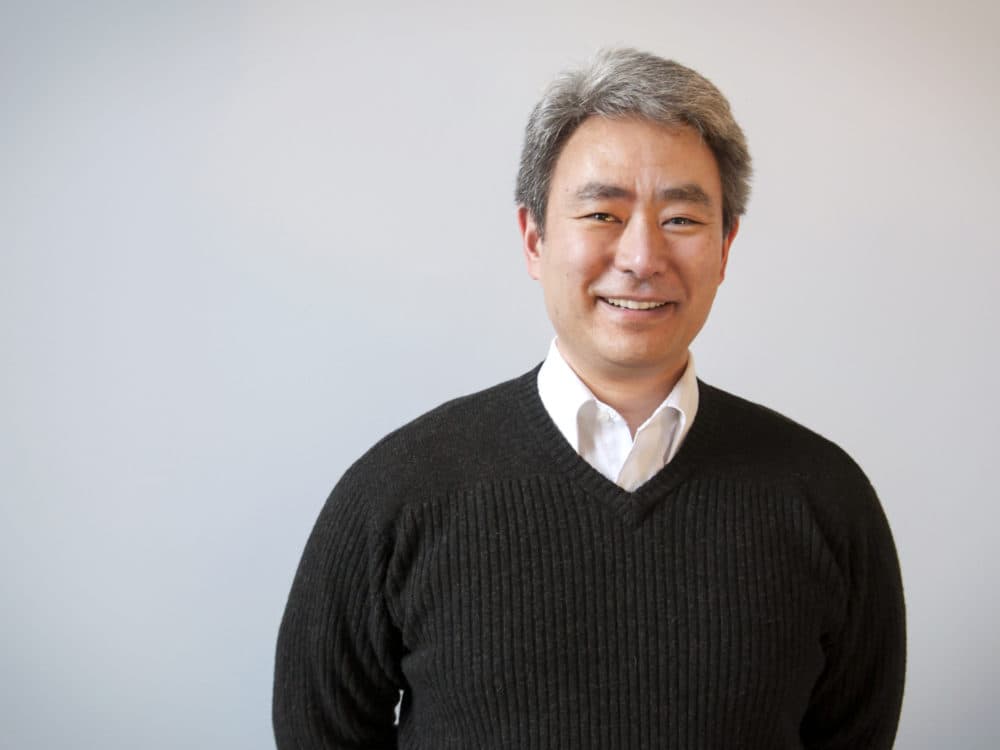Advertisement
National Association Of Evangelicals Leader Strives To Break Down Barriers, 'Build Bridges'

When Presbyterian pastor Walter Kim became the first person of color to lead the National Association of Evangelicals, he said he wanted to get beyond the metaphor of "culture wars" and instead build bridges.
But Kim took over the role as the country reached new heights of political polarization last year.
The father of two is tapping into his family’s history as he enters his second year as the organization’s leader and addresses a path forward for evangelical Christians.
Kim didn’t grow up as an evangelical. He established his faith in high school and says he found comfort within evangelicalism's “deep commitment to scripture, to personal transformation of Jesus.”
His father, a refugee, escaped communist China by crossing a river in a barrel, he says. Kim’s dad eventually took the family to the U.S. with the help of a Lutheran pastor. Then for years afterward, an Irish Catholic family took Kim’s household under their wing, he explains.
“People of faith have been deeply a part of my own family history in terms of welcoming us to America,” he says.
As a pastor of color, he says he wants to summon that level of care and hospitality to “reach across differences that right now seem insurmountable in a time of tremendous polarization." That means starting conversations about identity and faith.
NAE leaders, including himself, understand that having conversations about faith and identity can be complicated by what evangelicalism is often associated with — whiteness, a certain political identity and “a sense of hypocrisy between what the moral witness and character is of evangelicalism versus its statement,” he says.
One in three American evangelicals identifies as a person of color. But a lot of emphasis has been put on white evangelicals, in part because of political divisions that were laid bare during the Trump administration.
Advertisement
Kim says there is a “much richer history” and diversity to evangelicalism than what the current narrative implies. The Assemblies of God, he points out, is 50% white congregants and 50% congregants of color.
In the past, evangelicals have “engaged in issues of racial justice and reconciliation,” he says. In 1912, “the second conference of the NAACP was hosted at Park Street Church, a flagship evangelical church in Boston” Kim says, adding he was the pastor there for 15 years. The first chartered group of the NAACP rose from that conference, he notes.
Yet, Kim acknowledges the conversations about racial justice movements are “incredibly painful.” Within the NAE, there’s “a moment of reckoning” in terms of not just diversifying the people in the pews on Sundays, but how to support “a diversity of culture where we engage meaningfully and in solidarity with the vastly different life experiences and expressions of faith,” he says.
That’s no easy task. If it were, “it would have been solved already,” he says. Kim believes faith is “well equipped” to address these issues, even if religion hasn’t always adequately addressed problems of identity and faith in the past.
Some evangelicals feel like many leaders in the movement sacrificed their credibility and moral high ground by adamantly aligning themselves with former President Donald Trump, as The Daily Beast’s Matt Lewis reports.
While Kim makes it clear the NAE doesn’t give political endorsements or statements, he says the organization does engage in policy that pertains to faith. Evangelicals have a wide range of political expressions, he says.
After Trump’s loss, he says the wider community has been “soul searching again on what is the appropriate use of power, and how would a follower of Jesus engage in this pluralistic society and constructive dialog even as it seeks to challenge and present a faith perspective?”
For him, that means strengthening the political, social and cultural expressions and implications of evangelicalism in the public eye.
Right now, Kim is thinking deeply about public theology and raising the next generation of believers, he says, so evangelicals become “more informed by scripture than we are informed by our social media feed.”
James Perkins Mastromarino and Ciku Theuri produced and edited this interview for broadcast with Todd Mundt. Serena McMahon adapted it for the web.
This segment aired on March 25, 2021.

